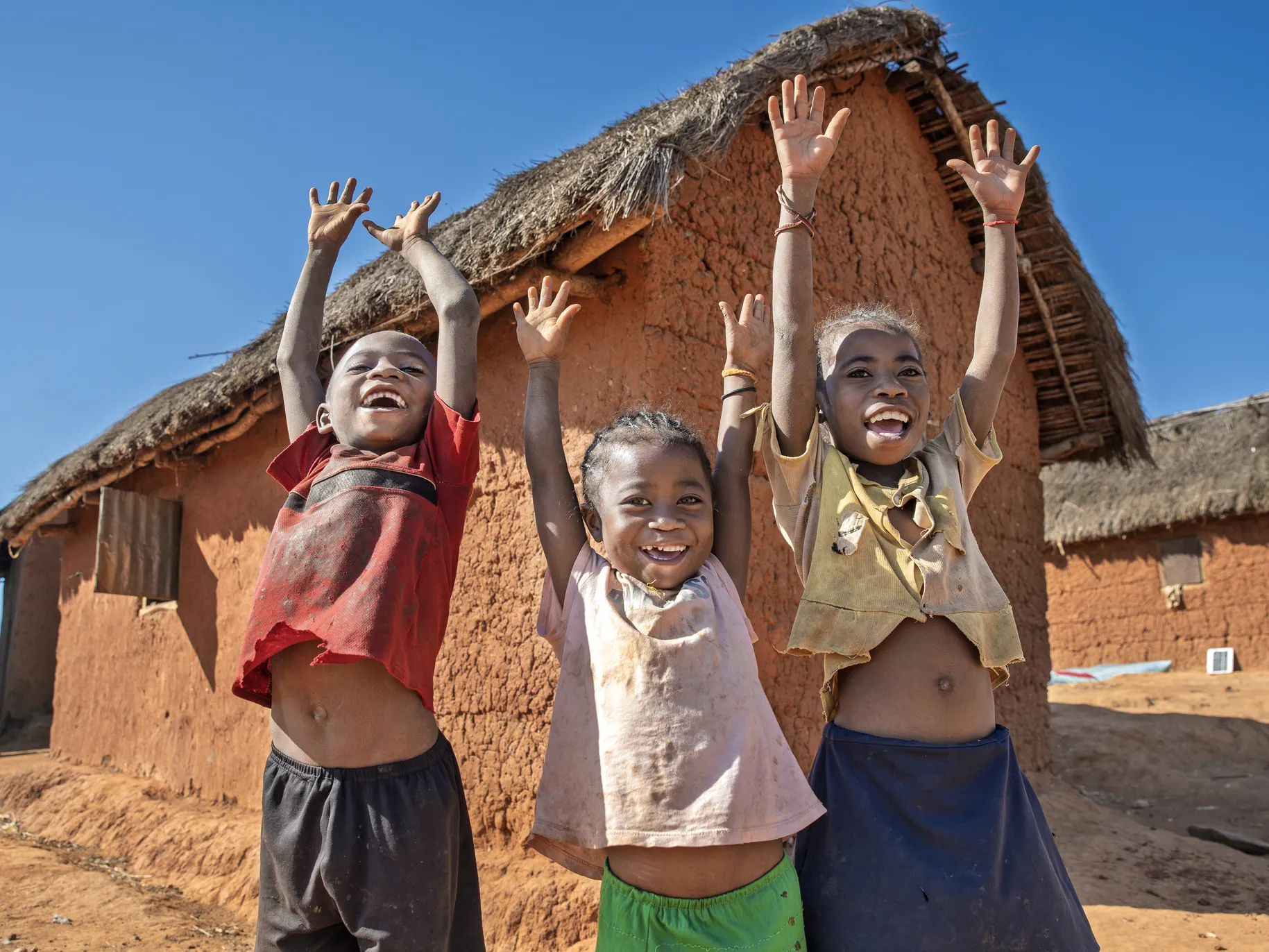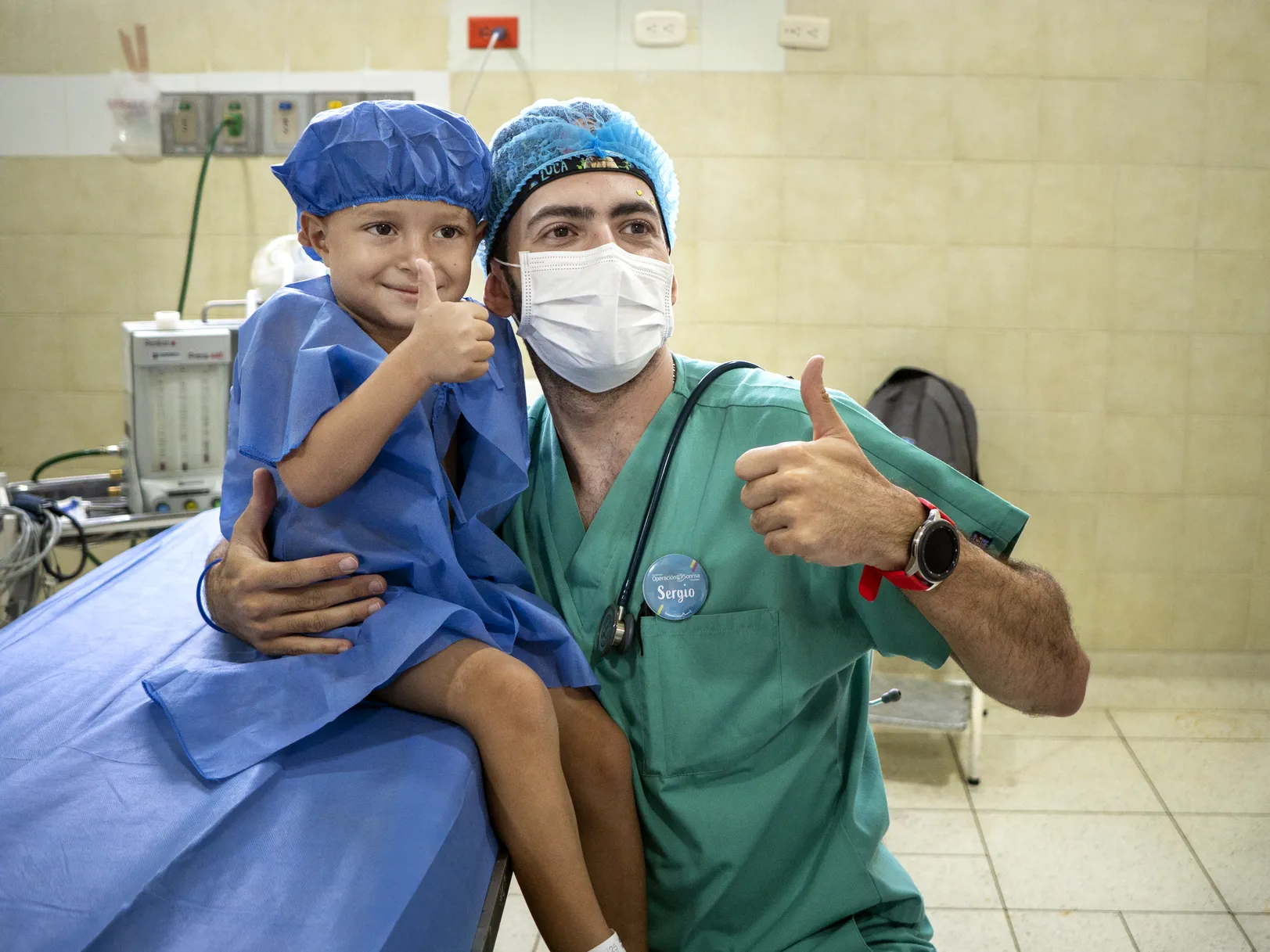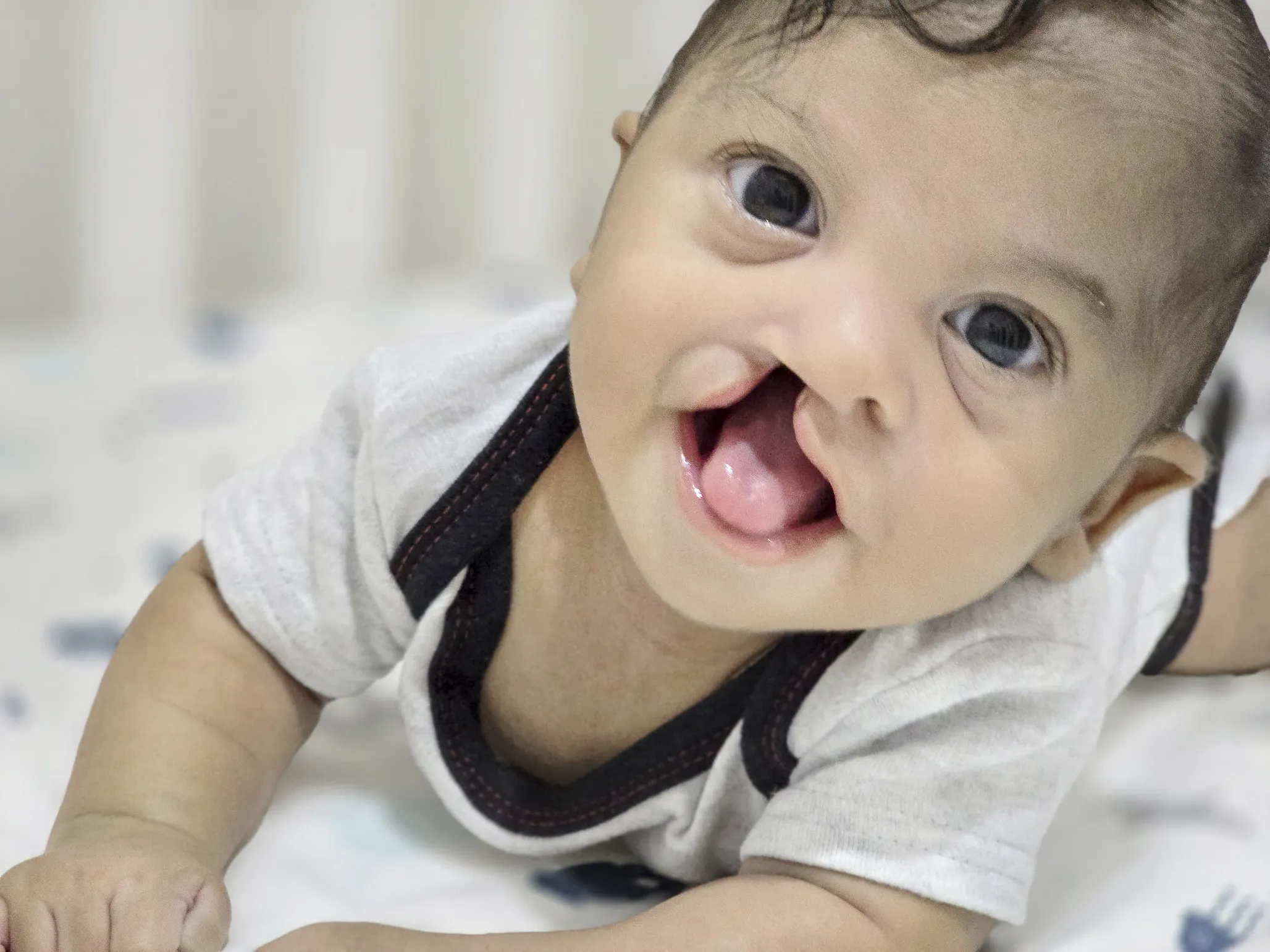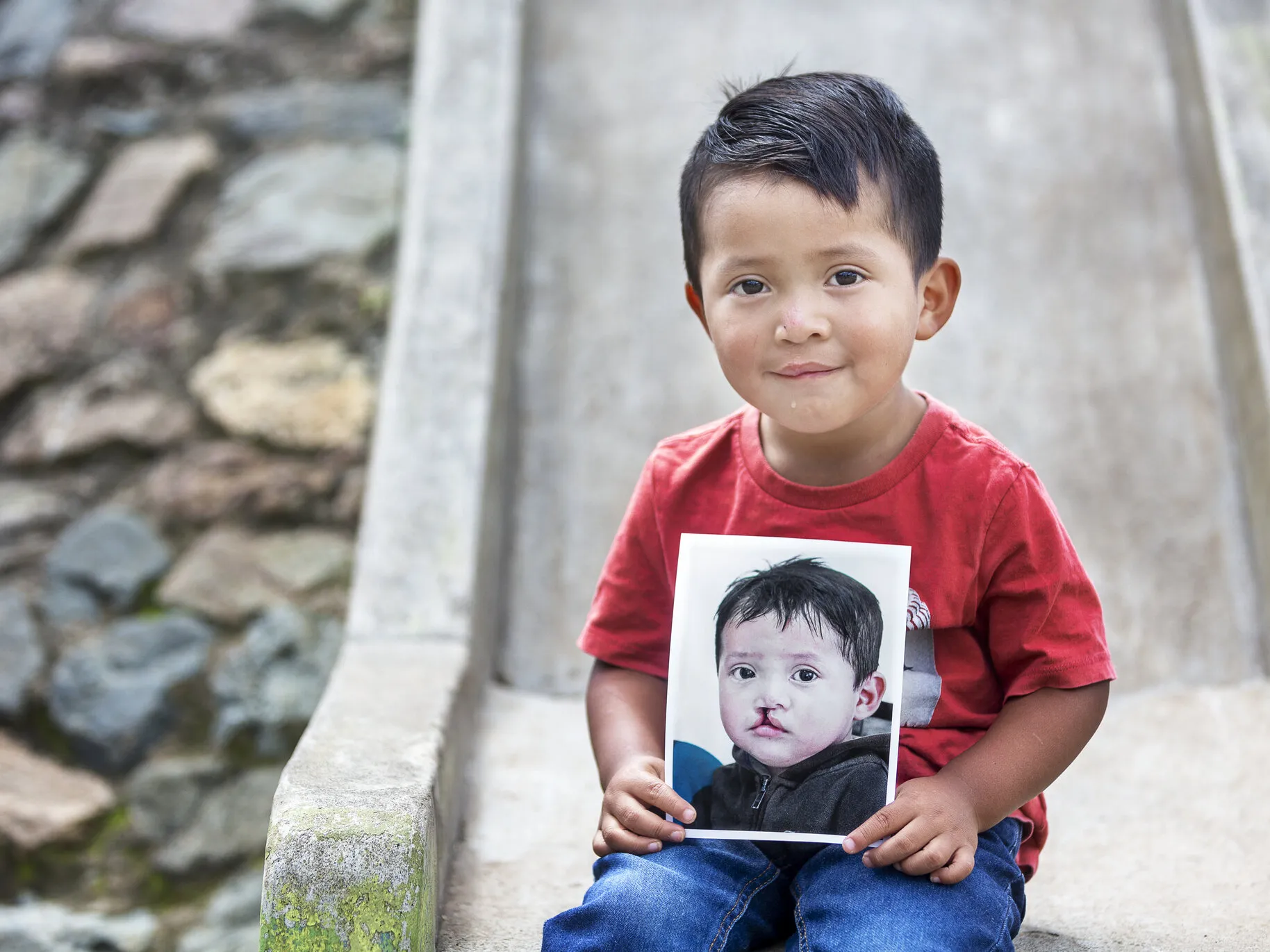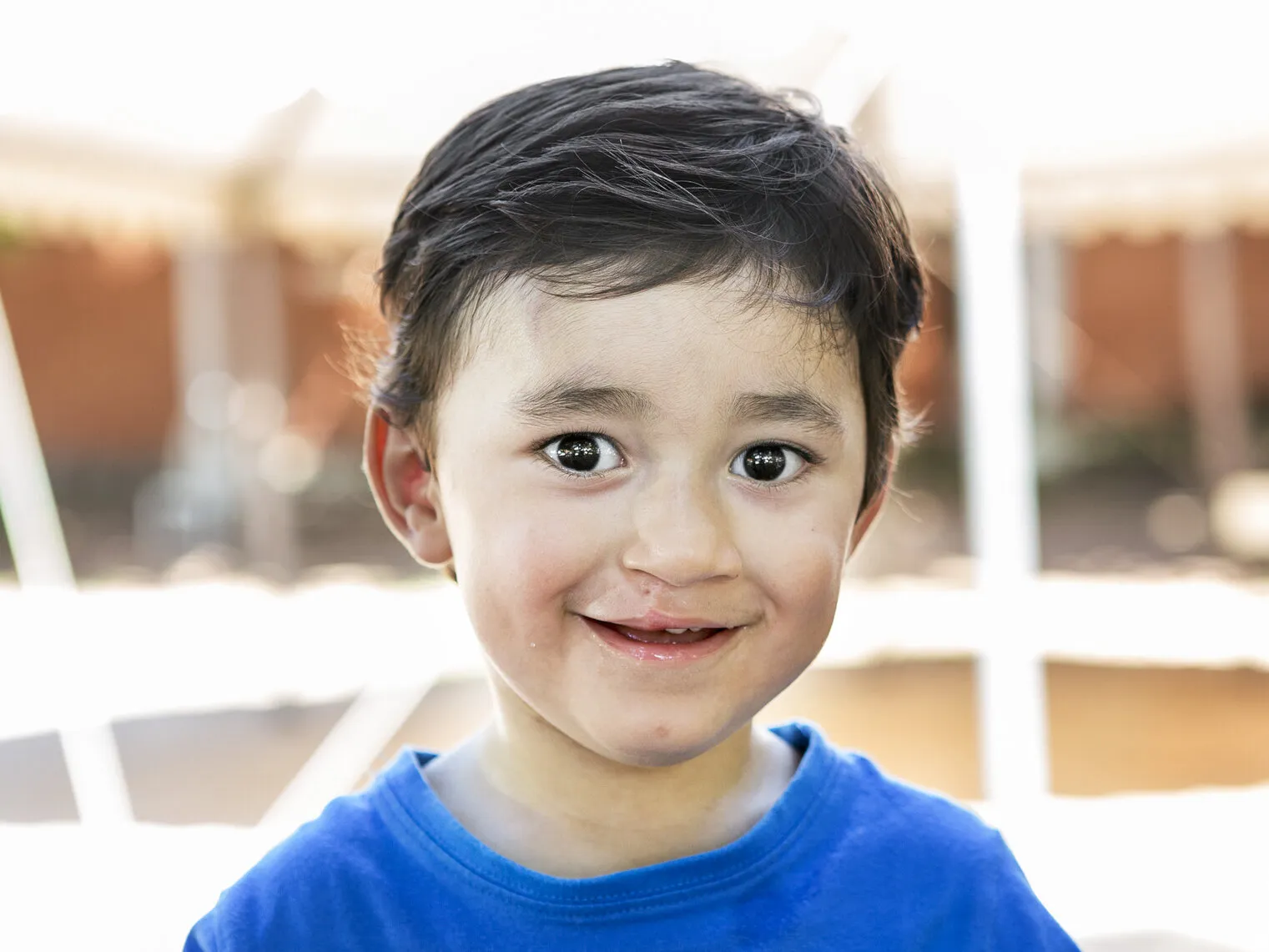Patients
Libyan Children Receive Life-Changing Cleft Care in Egypt: Q&A with Regional Director Dr. Mohamed El-Shazly
Amid political turmoil in Libya, two neighboring countries united to spread peace and healing for families affected by cleft conditions.
Local Operation Smile Egypt volunteers and staff welcomed nearly 30 patients from Libya who were born with cleft lip and cleft palate. This was no small feat, as Libya is still in the process of recovering from a decade of suffering and instability.
According to regional director of the Middle East and North Africa region and CEO of Operation Smile Egypt Dr. Mohamed El-Shazly, the goal of bringing children in need to Egypt for care has been in the works since February 2021.
“The Operation Smile Egypt teams have been working on this program with Libya for a long time through pre-screening sessions by way of virtual resources, sharing photos, lab results and health history for more than 30 patients,” Mohamed said. “Twenty-four patients were physically screened at Operation Smile Egypt’s cleft center.”
Libya is an area of the world where conflict and war have left its health care system on the verge of collapse, and 1.3 million people living in the country struggle to access the most basic of health services.
“There are a lot of patients suffering from cleft conditions. The specialized surgery programs like plastic surgery in this country are not yet fully developed,” Mohamed said. “Children often can’t receive surgery due to the current unsafe situations, war and political instability.”
This program was the first of its kind with respect to children and families from another country traveling into Egypt to receive care. With the support of both Libyan and Egyptian ministries of health, 24 patients were screened, 17 underwent surgical care and seven Libyan medical professionals received training.
We recently connected with Mohamed to learn more about the care and training provided during this program and how he hopes it will be the first of many surgical programs Operation Smile Egypt will host in the future.
Q: This program was a beautiful display of the compassion and solidarity between Operation Smile Egypt and Libyan families and health care workers. Could you provide more context behind the orchestration of this surgical program?
A: “It was an amazing start to Operation Smile Egypt’s fiscal year activities with a new type of program providing health care for neighboring countries, especially countries that are suffering from health, war and political problems. There are a lot of patients who need help and support who will lose the ideal timing of surgery due to their country’s problems.
“We have some connections in Libya through plastic surgery and anesthesia residents who were trained in Egypt. They were the main contact with the authorities in Libya. The minister of health and the health coordinator in the temporary Libyan government were very enthusiastic and supportive of this program.”
Q: Could you describe the need for cleft surgery for these Libyan children? Why weren’t they able to receive surgery in Libya? What’s the overall environment like for these patients and the Libyan health system?
A: “There are a lot of patients suffering from cleft conditions, and they are existing in different sites in Libya from the far desert areas to the main cities. The specialized surgery programs like plastic surgery in this country are not yet fully developed. Many Libyan patients seek medical advice and management in Egypt and Tunisia. Children born with cleft conditions often can’t receive surgery due to the current unsafe situations, war and political instability.”
Q: Did Operation Smile Egypt see a need and extend a helping hand to Libya? Or did Libya seek help from our team?
A: “Libya did seek help and asked us to travel into country, which isn’t possible nowadays due to the unsafe conditions. The Libyan ministry of health and the Medical Attaché of the Libyan Embassy in Egypt – who visited the [program] – had delivered and expressed his appreciation to the medical team and the support of Libyan and Egyptian ministries of health for this program. He expressed his willingness to continue the cooperation in the near future with a huge program for treating Libyan children and training of Libyan volunteers.”
Q: Which partner organizations and government agencies helped make this program possible, and how did they contribute to its success, respectively?
A: “The Libyan nonprofit Drawing Smiles was the responsible body to recruit and screen patients and prepare all logistics. The International Organization of Migration connected us with the same foundation in Libya who helped in patient recruitment. UNICEF Libya also served a role in patient recruitment.
“While the Egyptian ministry of health assisted with the needs to cross borders, the Libyan ministry of health funded air tickets for patients and their families. Assiut University provided free medical supplies, discounted accommodation and food supplies for the families and free management in the new and old Assiut University hospitals for non-Egyptian citizens.”
Q: Could you provide us with more detail on the logistics behind the transportation of 30 Libyan patients across the border?
A: “Transportation was made possible with the support of the Libyan and Egyptian ministries of health and foreign affairs and a private plane transporting Libyan children with their families, who landed in Assiut Airport to find our staff and student team welcoming them and presenting them our gifts.
“Libyan citizens didn’t need a visa, but there was a security agreement which was done virtually weeks before the event with the state securities. Vaccination status and COVID-19 testing were performed in Libya, repeated during the [program] and before flying back.”
Q: You mentioned that seven trainees from various Libyan universities and hospitals received training. Could you provide us with more detail on that? Why do you believe this training was important?
A: “Three surgeons, one anesthesiologist, one pediatrician, one dentist and one patient imaging technician (PIT) received training.
“It’s a good start to building a team there following Operation Smile global standards, and the feedback was amazing from them and from the Medical Attaché of the Libyan embassy in Egypt. Also, our educators had presented the most possible experience and training modules to the Libyan volunteers in surgery, anesthesia, pediatric care, dental care and PIT. They were serious and very keen to get the maximum knowledge possible to follow up with their patients in their home county and to start a nucleus for this service in Libya.”
Q: Could you share the sentiments that the patients and their families shared with you and your team?
A: “Most of them couldn’t believe we would provide surgery for their patients. They were more than welcomed in Egypt, and they hope that there are people still caring for them, even people not inside their country. A lot of appreciation to the foundation that gave what they needed for free. They were very happy to find this care in Egypt.”
